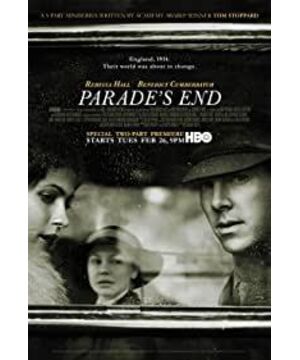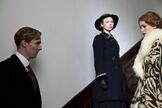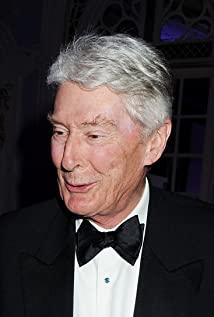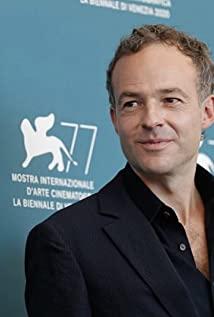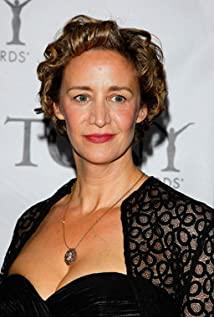Personally, I think that the editing of this drama is quite strong, the rhythm is fast but never chaotic, every line has a meaning, and it is different from domestic adaptations such as "White Deer Plain". The reason why many girls say they don't understand is that the key problem is that there are three background factors in the play that are not specified - in fact, for the readers of the original book, or for the general British audience, these three factors are self-evident. Yes, but for us in the cultural circle next to us, it is easy to feel confused. The three hidden premises are religious conflict, economic factors, and marriage patterns in high society.
Premise 1: Religious conflict
Britain is a Protestant (Christian) country, but for various reasons, Catholicism is still strong. The two are enemies of each other, hate each other, and have tit-for-tat political tendencies and social circles, which directly affects the history of Britain. Succession to the throne and even the modern political situation. Interested children can watch BC's "The Dove Occupying the Magpie's Nest" and the movie "The Virgin Queen Elizabeth", and I won't go into details here.
Christopher's reputation in the social circle was so disreputable that his former friend's bitch wife avoided him like a scorpion. In addition to his wife's derailment, love rival's meddling and other bad factors, one of the main reasons was that he was a Protestant, but he married The Catholic wife, who has crossed the red line of social norms, is like a bat, neither a bird nor a beast. Neither group has a place for him, and he is self-exiled outside the mainstream values. In addition, there are no high society friends, and the only one is a white-eyed wolf, so once a scandal occurs, he will be completely isolated and helpless.
At the beginning of the plot, his parents and friends did not agree with the marriage, and religious reasons accounted for a large part. Later in the plot, the reason why brother Mark said "If she wasn't Catholic, I would have married her" was actually for the same reason.
The combination of two different religions also brought about various estrangements in Christopher and Sylvia's life, such as the education of children: at first Christopher refused to let Sylvia take care of the child because he was afraid that the child would become Catholic. He asked his sister who married a Protestant pastor to help; later the conflict between the two was resolved, and he promised to let his son follow Sylvia, which was actually an apology, a big concession, which surprised Sylvia. Another example is the line that made his father extremely distressed, "Catholics (Christopher's son) will be the masters of Grobbie", and finally chose to commit suicide, all because of the fierce conflict between the two religions that is difficult to reconcile. .
In fact, it was precisely because he married a Catholic wife that he could not get a divorce (Catholic doctrine does not allow it, in fact, Christopher's own Protestantism can be divorced), and he fell into a dead end and could not turn around.
After all, why did Christopher marry Sylvia? Sylvia's invincible charm must be one of the reasons, and her own gentleman's code must be one of the reasons, but these are by no means all. I don't know if anyone has noticed that in addition to these two points, economic factors are also important reasons. Why? Please see the next one.
Premise 2: Economic Factors
The British tradition is primogeniture, which means that the eldest son inherits 100% of the family property, and the daughters are married off with a dowry (generally not much money, see Pride and Prejudice, unless If you can catch heirs of the same class, such as Mr. Darcy, you can only marry, marrying a poor priest or the like - which is not bad, at least with social status - or simply living alone for life, old ladies are everywhere) , the second son and the younger son went to work as priests or went out to work (in the Middle Ages when the Crusaders attacked Jerusalem, in modern times as civil servants, to join the army). Daughters and second and youngest sons generally only inherit their mother's dowry (Christopher lends his mother's estate to friends, so that his older brother is concerned about his financial situation), or even gets kicked out of the house directly to end his life. To ensure that the inheritance of the patrilineal family's inheritance from generation to generation is not divided.
The Christopher family is a typical wealthy squire class, not the upper-class aristocratic lords mentioned in Baidu Encyclopedia. In fact, it is still far from it. According to the primogeniture system, Mark is fully raised by his father, and his younger brother Christopher is inevitably neglected and neglected. His father also regretted this before committing suicide. Knowing that the eldest son gave up his inheritance and devoted himself to politics, he should have nurtured the younger son early to avoid the younger son from entering into an unsuitable marriage. In addition to notoriety, he also gave birth to people of unknown origin and belief in hostile religions. heirs. Christopher's economic situation can be imagined that he has not been very wealthy. Even if there is no rival in love, he is always on the verge of bankruptcy. In fact, the second son and youngest son who grew up in Jinyi Yushi borrowed money to live. Because of their limited ability to make money and spending a lot of money (if you want to stay in this class, you have to maintain the consumption habits of this class), "maintaining decent" has become a particularly difficult thing. So what to do? In fact, it is very simple, as Rochester said in "Jane Eyre": "They sold me" - the best way is to marry a wealthy heiress for the second son to inherit the woman's property.
This is also mentioned in the play. Christopher said "I live with my mother-in-law, she is very generous" when explaining his marriage choice at the beginning of the first episode, and then his brother never said anything against it. This section of the plot is actually explaining the cause and effect, telling the audience that Christopher's marriage motive has a great economic factor. In terms of class, in fact, he not only crossed the line (ignoring religious hostile relations), but also climbed high. Knowing this, it is understandable at the beginning of the story that Sylvia threw the cutlery at the breakfast table. In the relationship between husband and wife, although Sylvia has a bad behavior, she is always the strong party (you can make up your mind to become a coal boss. It's not just because Christopher is too old and tough (although he is indeed). Sylvia was accustomed to being completely dominant in front of her husband and had a strong sense of superiority, always had. With the progress of the plot, this sense of superiority gradually changed, and she gradually discovered Christopher's unique advantages, discovered his rich inner world, and truly fell in love with him. But Sylvia has never been able to let go of her sense of superiority, let go of her airs and communicate with her husband on an equal footing, finally giving Valentina a chance, and making their relationship truly desperate.
"End of Queue" is never a romance novel. The tension between Christopher and Sylvia is infinitely more complicated than "Cuckolding - Raising Sons for Others". It would be good if you were just jealous and you hurt me and I hurt you. It's a lot more resolved - in fact, it is the fashion trend of the whole of Europe in the 18th and 19th centuries that couples cheat on each other and cuckold each other.
Premise 3: The Marriage Model of the High Society In the
18th and 19th centuries, the British upper class (in fact, the whole of Europe) had a typical view of marriage and love: "Marriage is marriage, love is love", and husbands and wives are economic partners rather than partners. , After both parties fulfill their obligations of sharing the bed and giving birth to the eldest son of noble blood, they can respectively find lovers to pursue their own happy lives. This is a social fashion and a self-evident unspoken rule. Restraint, not impulsive, maintain tacit understanding, save face for each other all the time (because the face of husband and wife is one), as long as you don’t get caught (as long as you don’t get caught on the train, you don’t care, touch someone else’s hand on the train If it is discovered, it is a big scandal), even if it is already a "secret known to the world", any behavior is tacitly regarded as "non-existent".
Regarding this point, we can take the works of Alexandre Dumas, a popular literary master in the mid-19th century, for example, such as the well-known "Three Musketeers": the king has a mistress, the queen also has a lover, and the society does not criticize their behavior, even the musketeers who eat imperial food Fighting hard for the queen's fornication (it can be considered treason in the serious sense); as long as the queen wears the diamonds sent by the king at the ball, everything will be fine, but once the diamonds are lost, the "unspoken rules" under the table will be turned up. On the table, that is a terrible catastrophe, and may even lead to an Anglo-French war - so in the context of the old tradition, Christopher's seemingly weak behavior is actually a commendable gentleman, while Sylvia's lover of private revenge is no fun Terrible little bastard. But times have begun to change. Christopher's old-fashioned practice no longer works, and even has the opposite effect. The reason why this plot is set up in this way highlights the conflict, not the pure morality of Sylvia. criticism.
In the 20th century, and even now, this type of marriage has never disappeared, and maybe there are around you and me. By the way, the theme of BC's stage play "One Dance is Over" is this twisted marriage relationship, expressing the relationship between "doesn't understand love and her husband" and "a wife who can't express herself in deep love". The contradiction and entanglement of love and being loved caused irreversible tragedy, which has always been the classic theme of drama.
Regarding this part of the content, there are too many expressions in the play, too many to list, please take your own seat. In fact, I just want to clarify one point on this issue, that is, under certain historical conditions and atmospheres, what Christopher has shown is actually restraint, forbearance, silent bearing, and obedience to the long-outdated "Victorian Gentleman Spirit". Not timid and useless. This character has never been a coward (indeed, from our cultural point of view, the hatred of killing the father and taking the wife is undeniable, and if you don't take revenge, you will have no seeds, how can you help your wife cover? But this understanding is typical cultural dislocation and contextual misreading), on the contrary, he has always had a spirit of resistance, perseverance and courage (whether it is the "outrageous" choice of marriage and friendship, the appreciation of the rich inner world of independent new women, the sense of professional responsibility and performance on the battlefield), he was never Ashley Wilkes, who was like a duck to water in the old times but could not adapt to the new Shida at all. Instead, he was more like a restrained, reserved, "Holy Father" in the skin of an English gentleman. A version of Captain Rhett Butler - he worked so hard to adhere to the old code of conduct, but essentially had a new age soul.
In fact, this is the biggest contradiction in Christopher's spiritual world, it is also the inner driving force for the development and change of the whole play, and it is the fundamental reason for his determination to make the final choice. The turmoil of the times destroyed Ashley Wilkes, but brought Christopher back to life. Although the process of breaking the cocoon is destined to be entangled with pain, once this difficulty is overcome, there is nothing that can stop him from spreading his wings and flying into the vastness of the new world.
In the same way, this "custom" has also caused public opinion to accept the status of "lover". Except for not changing the surname, except for being a lady for life, it is actually the same as a husband and wife, which is equivalent to cohabitation or even civil affairs in the modern sense. partnership. In fact, the stories of the social turmoil period are all the same. There is never anything new under the sun. There are also a lot of young women in literature and art in our country who were born in the side room (the euphemistic name is free love), and finally the wife who is married by the real bright media is forgotten by history. For example, Lu Xun and Xu Guangping, and even Chairman Jiang and Song Meiling, there are countless, all the same.
Therefore, whether it is Sylvia cheating or Valentina being a junior, it is not fair to simply use modern morality to evaluate or even crusade. It is unfair, and it is undoubtedly a misreading of the main theme of the play.
***
Anyway, once the three underlying premises are figured out, the show turns the clouds away almost immediately. Christopher was never perfect, he was kind and tolerant but introverted, he was intelligent but not good at socializing, he was ambitious but made rash decisions at critical junctures in his life, concluded an inappropriate marriage, and almost ruined his entire life because of it. When he was young, he was indeed captured by lust (who hasn't?), and he did distort his dignity because of his own weakness (in fact, it is absolutely not shameful to eat soft food in that kind of social environment), but from beginning to end, he has a kind of destiny A detached and calm attitude, never evading responsibility, never betraying and deceiving, but looking straight into his heart like a saint, paying for his contradictory concepts and wrong behaviors, silently bearing all the consequences, and even rejoicing. This is really different from Mr. Rochester (see "Jane Eyre") who lives in a lie and tries to deceive a little girl with a lie.
In this way, a gentleman of the old age, he is slowly getting old, his wife eloped, his reputation was ruined, true love appeared, and war broke out... The old order, the old code of conduct fell apart overnight and was overthrown. Come on, he started to live on his own salary, spending money stuck on his payday (see the overdraft incident in the play, and finally relying on his wife's ability to restore his financial credit), he began to search painfully, hoping to reshape Self, regain dignity. At the end of the story, he refuses to inherit Grobbie and leaves the wealthy estate proceeds to Sylvia and his son to learn about the last debt, while he and Valentina are in an empty old apartment with no furniture Self-reliance and hardships. Christopher has gone through prosperity and war, and finally found a new way of life that is poor but warm and peaceful, and even has real siblings. The destruction and rebirth of this spiritual world is magnificent, and his silence and perseverance, his courage and his path are enough to evoke a heartfelt respect.
Perhaps the point of this story is that Christopher is the "best man" that old morals and old traditions can produce, but in those cruel times, he still struggled to survive and lived on thin ice. In fact, this is not his personal fault, just because the old world represented by Sylvia, as well as the old morality and old tradition represented by himself, have reached the end of history and the end of the queue irresistibly. The outbreak of World War I was a reshuffle, a redefinition of order and class. In the face of the torrent of the times, happiness is always instantaneous, and pain is eternal, but you still have the right to choose - do you choose to face it, or choose to escape? When you're at the end of the queue, do you dare to take that step?
I think that's the real theme of the story.
View more about Parade's End reviews


